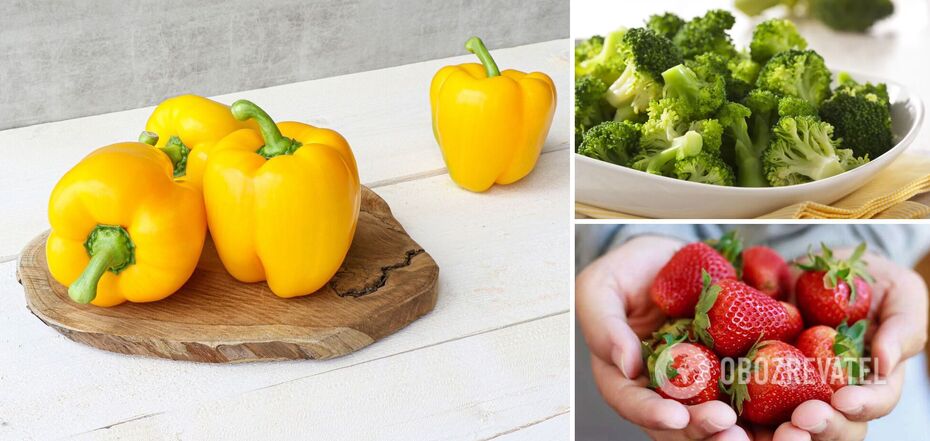News
Healthier than an orange: popular foods rich in vitamin C
When we talk about vitamin C, oranges and lemons are the first things that come to mind as a natural source of this essential substance. And tropical fruits are indeed rich in ascorbic acid. But, strangely enough, they are not champions in its content.
Eat This, Not That! has compiled a list of popular foods that contain even more vitamin C. When reading it, it is important to keep in mind that the recommended daily dose of ascorbic acid is an average of 90 milligrams per day, and the maximum allowable is 2000 milligrams per day. An average orange contains 70 milligrams.
Kiwi
One average kiwi = 71 mg, 79% of the daily value
This New Zealand native is almost identical to an orange in terms of vitamin C content, but still slightly superior. In addition, due to the fact that kiwi is smaller, the concentration of the substance in it is higher. Just two fruits for breakfast will provide you with the daily requirement of ascorbic acid.
Kale
One cup of raw leaves = 80 mg, 89% of the daily value
Any cabbage is rich in vitamin C. Therefore, ordinary borscht can be a good source of this substance. However, the curly relative of ordinary white cabbage (also known as kale, brown cabbage, or black cabbage) is one of the richest in ascorbic acid among its botanical and culinary relatives.
Strawberries.
One cup = 89 mg, 99% of the daily value
Just one cup of this sweet summer berry covers the daily requirement for vitamin C almost completely. In addition, strawberries contain powerful antioxidants that help prevent the development of chronic diseases.
Brussels sprouts
One cup of cooked brussels sprouts = 98 mg, 109% of the daily value
Another member of the cabbage family in the ranking of champions in vitamin C content. Small heads of cabbage, along with ascorbic acid, also provide the body with vitamin K, folic acid and other nutrients. Brussels sprouts are also very rich in fiber.
Broccoli
One cup of cooked broccoli = 102 mg, 113% of the daily value
Broccoli is the champion among cabbages in terms of vitamin C content. Even when cooked, it provides the body with it in full. In general, studies show that regular consumption of vegetables from the cabbage family can help reduce oxidative stress and reduce the risk of cancer.
Salad mustard
One cup raw = 195 milligrams, 216% of the daily value
If you cut one cup of this green into a salad, you will get a double dose of vitamin C. If you use salad mustard in hot dishes, the amount of the substance will decrease slightly under the influence of temperature, although it will still be 130% of the recommended daily value.
Yellow bell pepper
One cup = 275 mg, 305% of the daily value
This sunny, sweet and incredibly juicy vegetable is a champion in terms of vitamin C content. Raw, one cup of yellow pepper will give you a triple boost of ascorbic acid. But it will be no less useful when cooked.
Only verified information is available on the Obozrevatel Telegram channel and Viber. Don't fall for fakes!



























